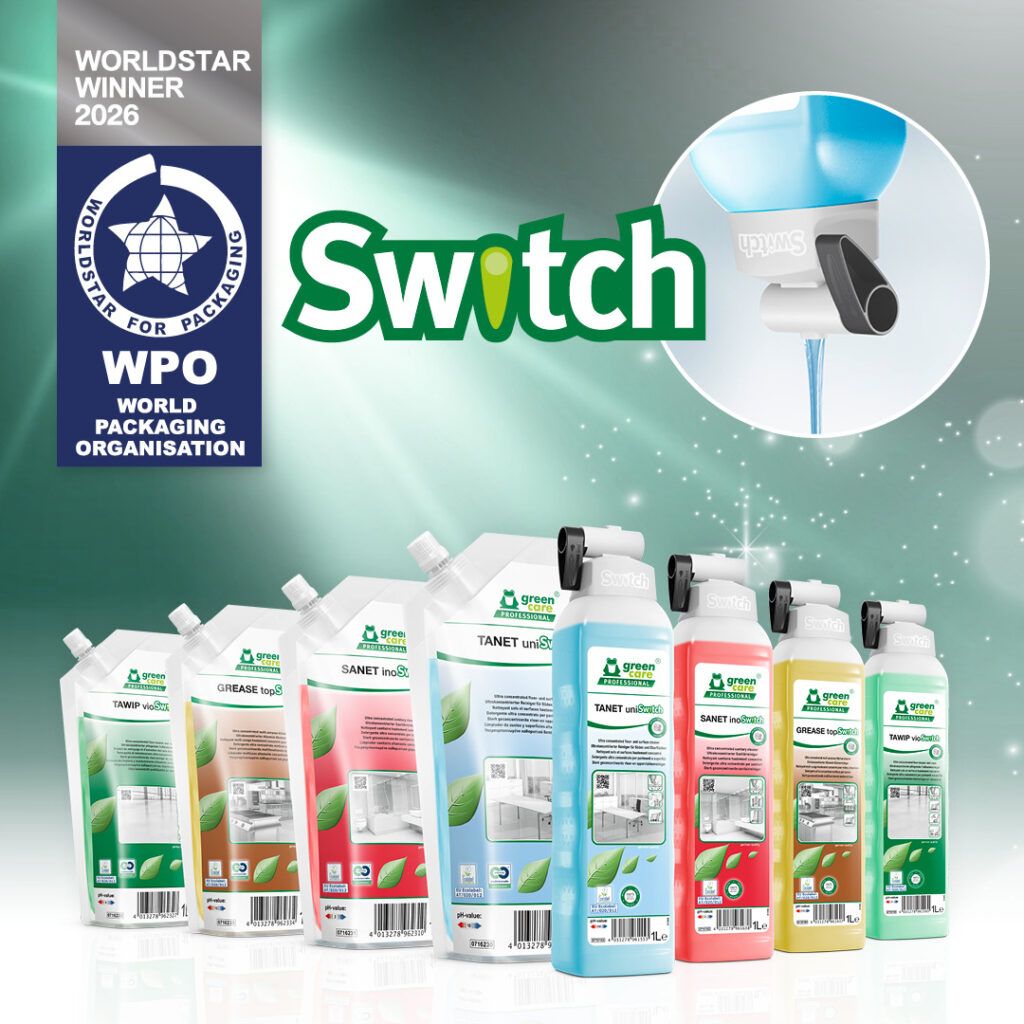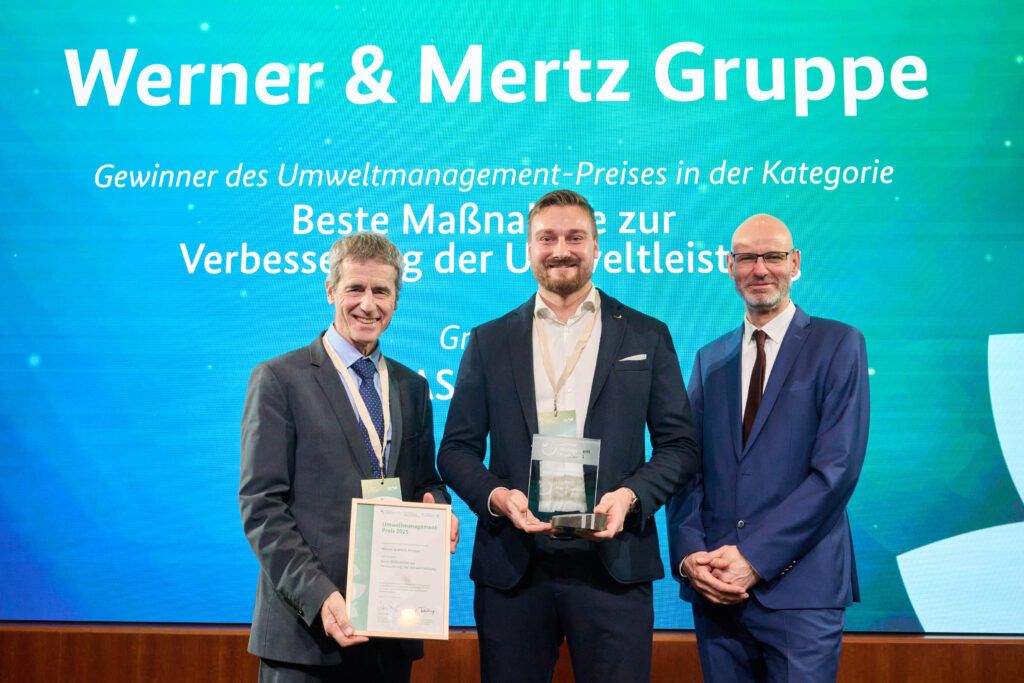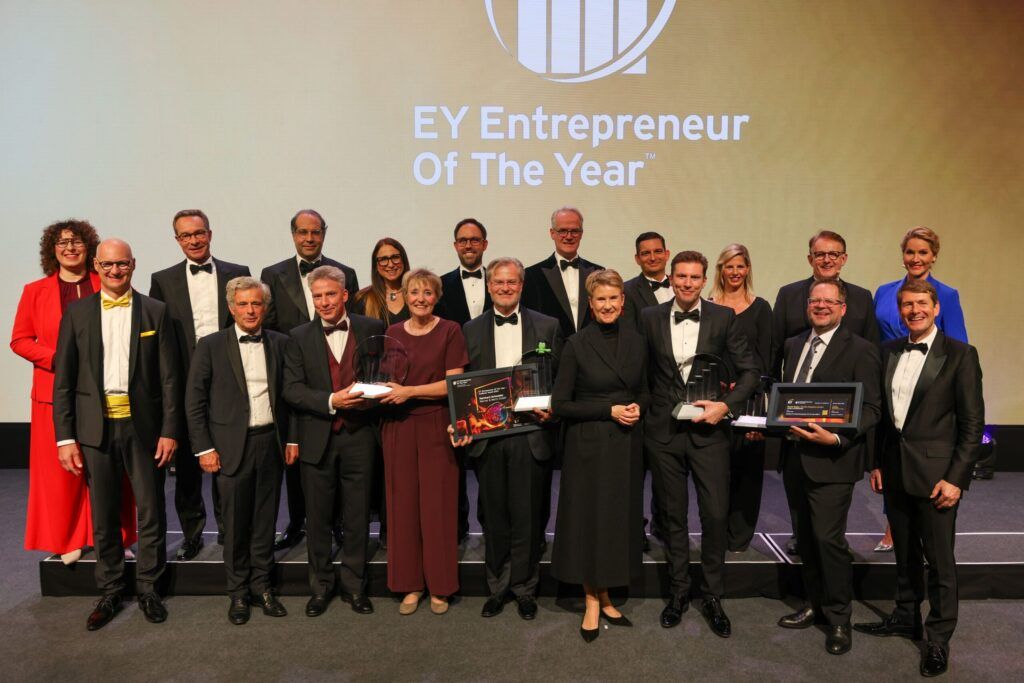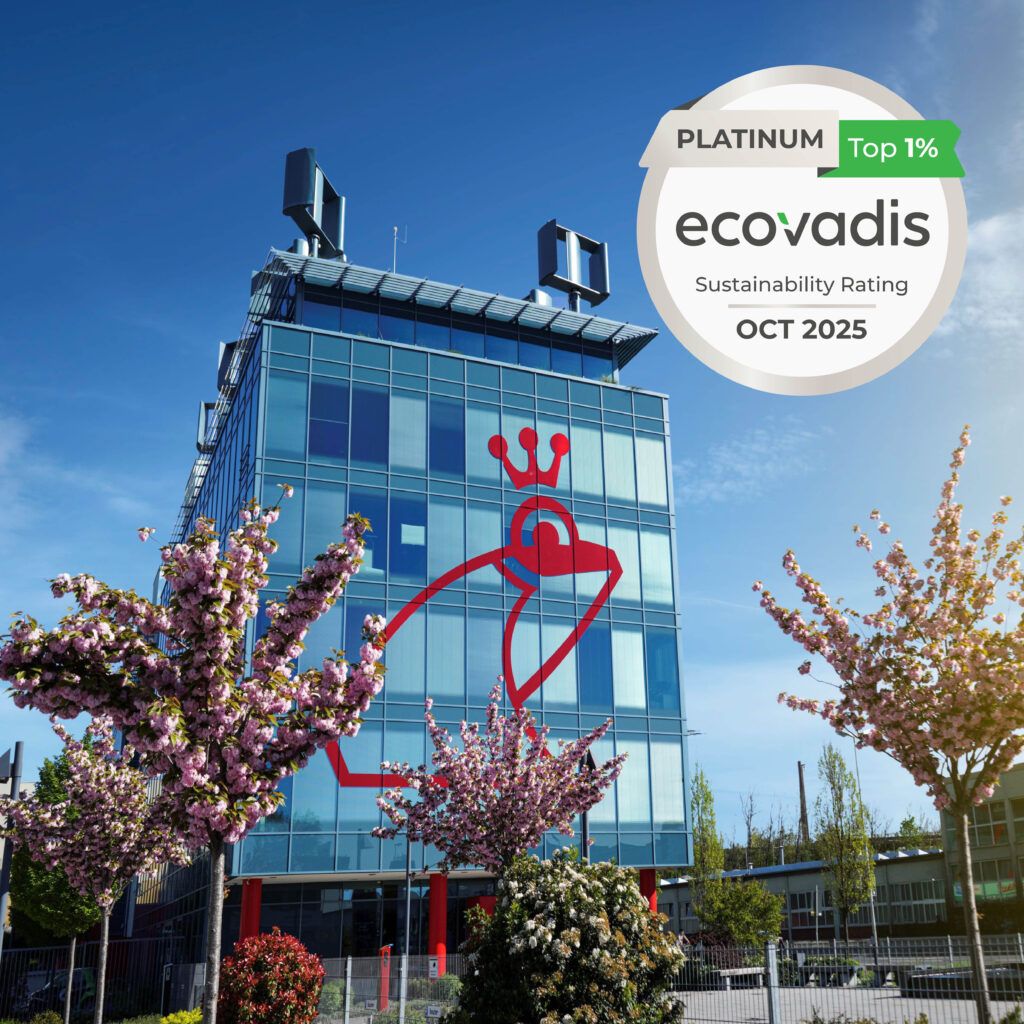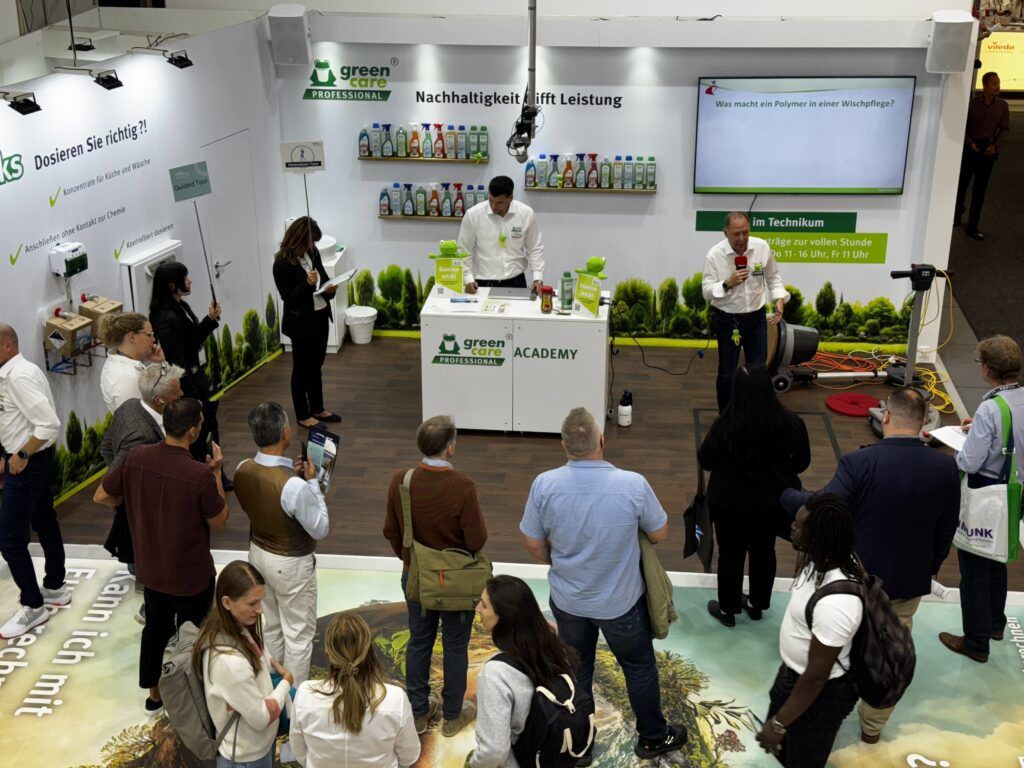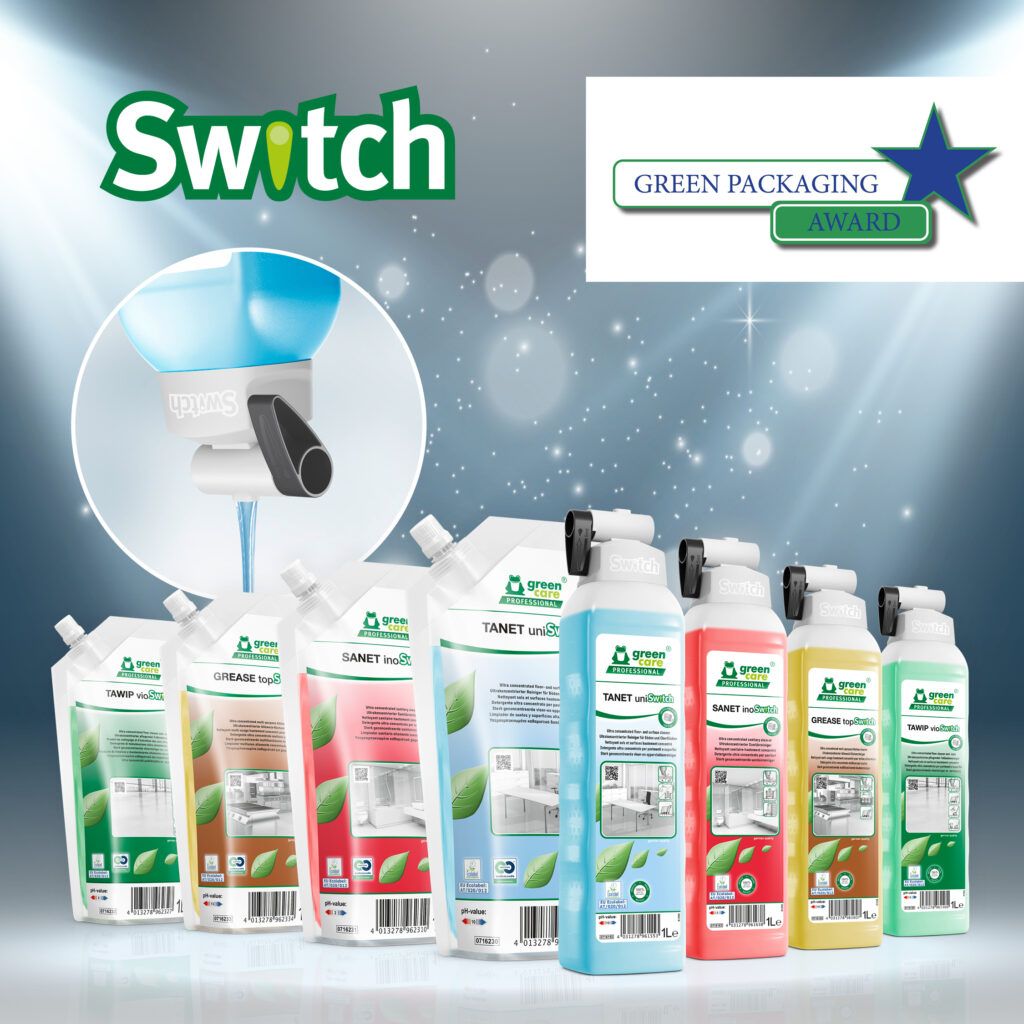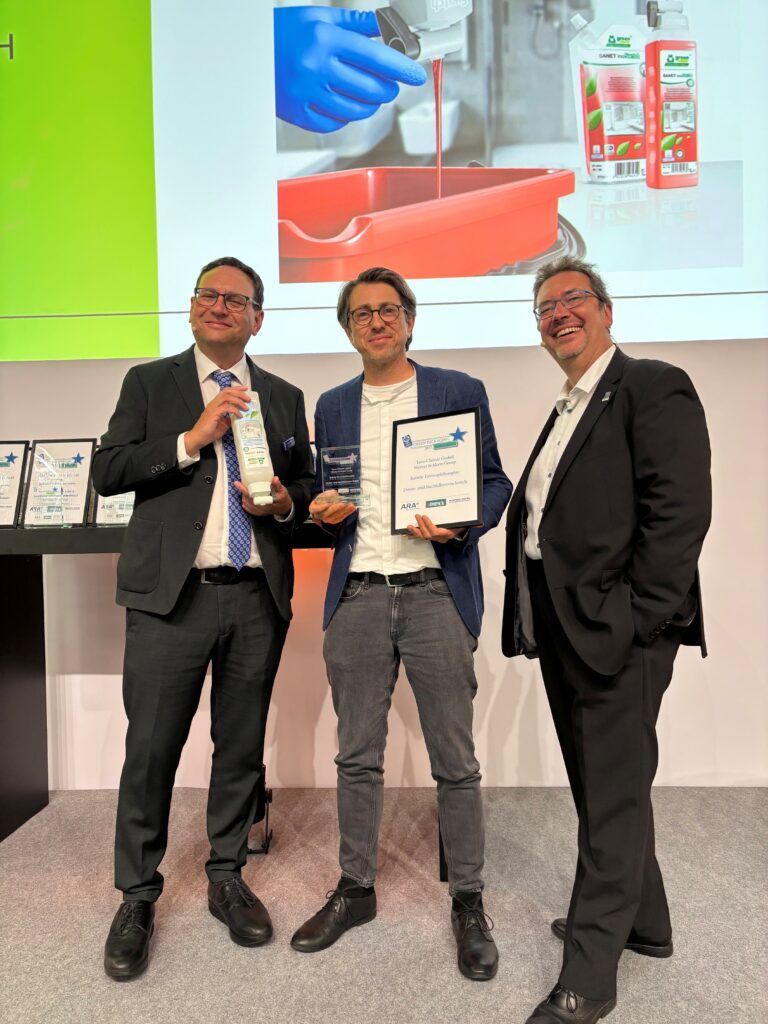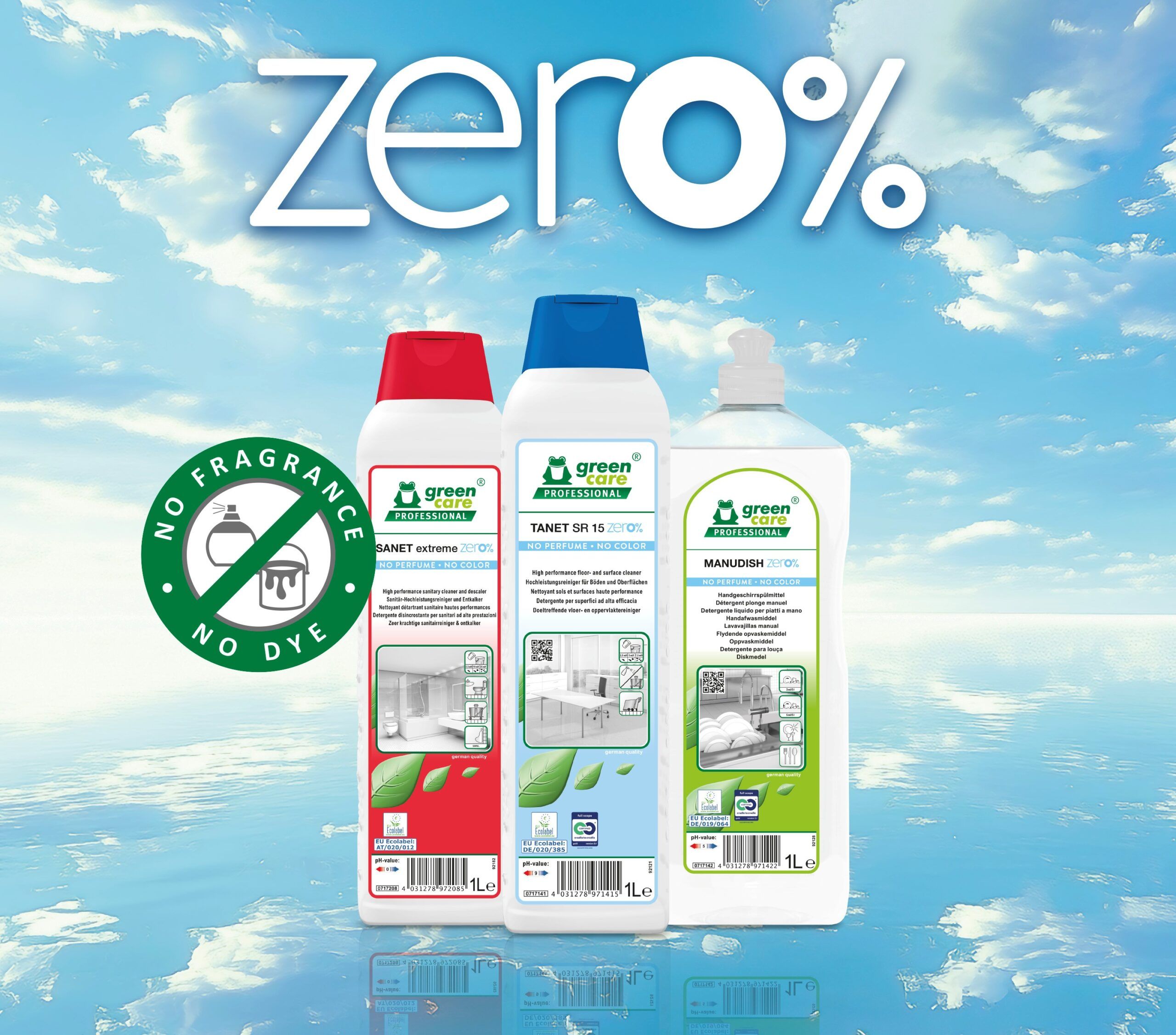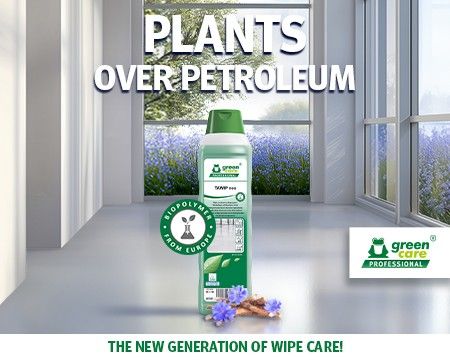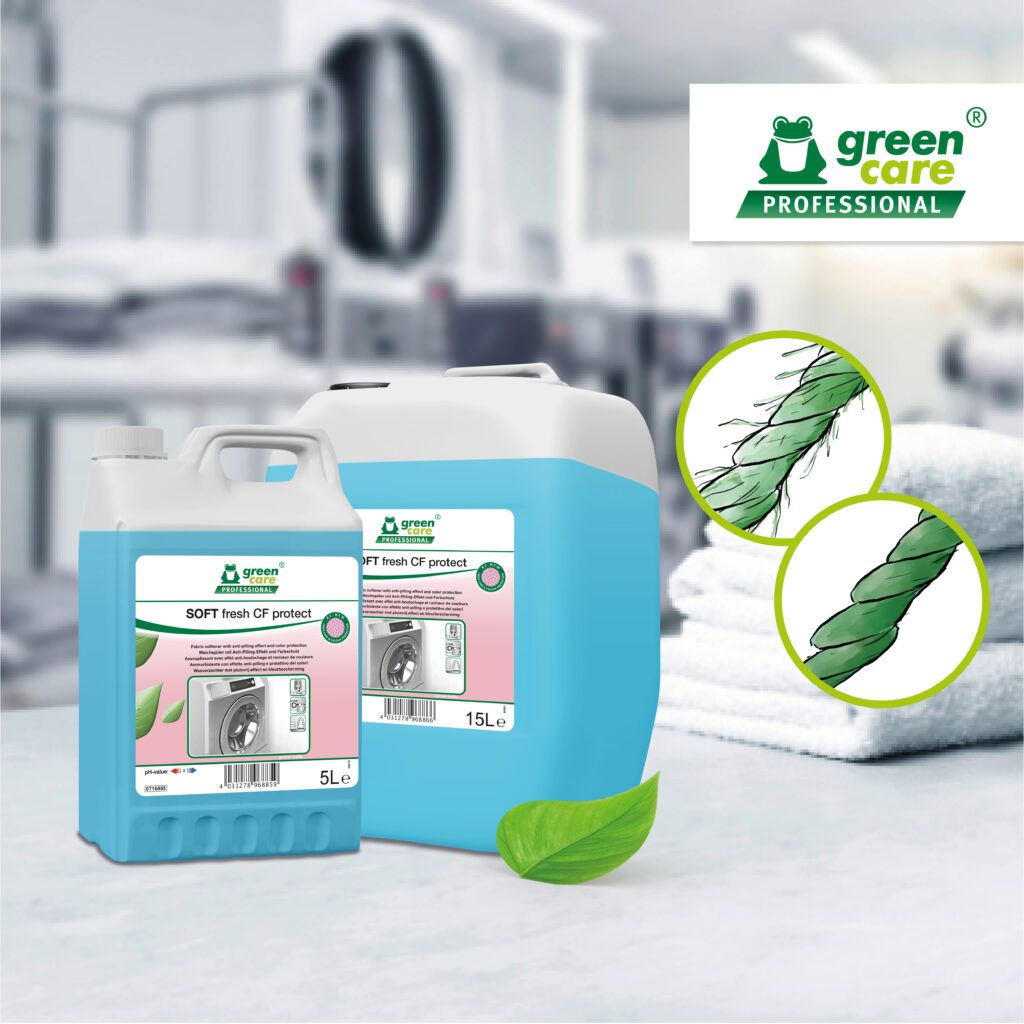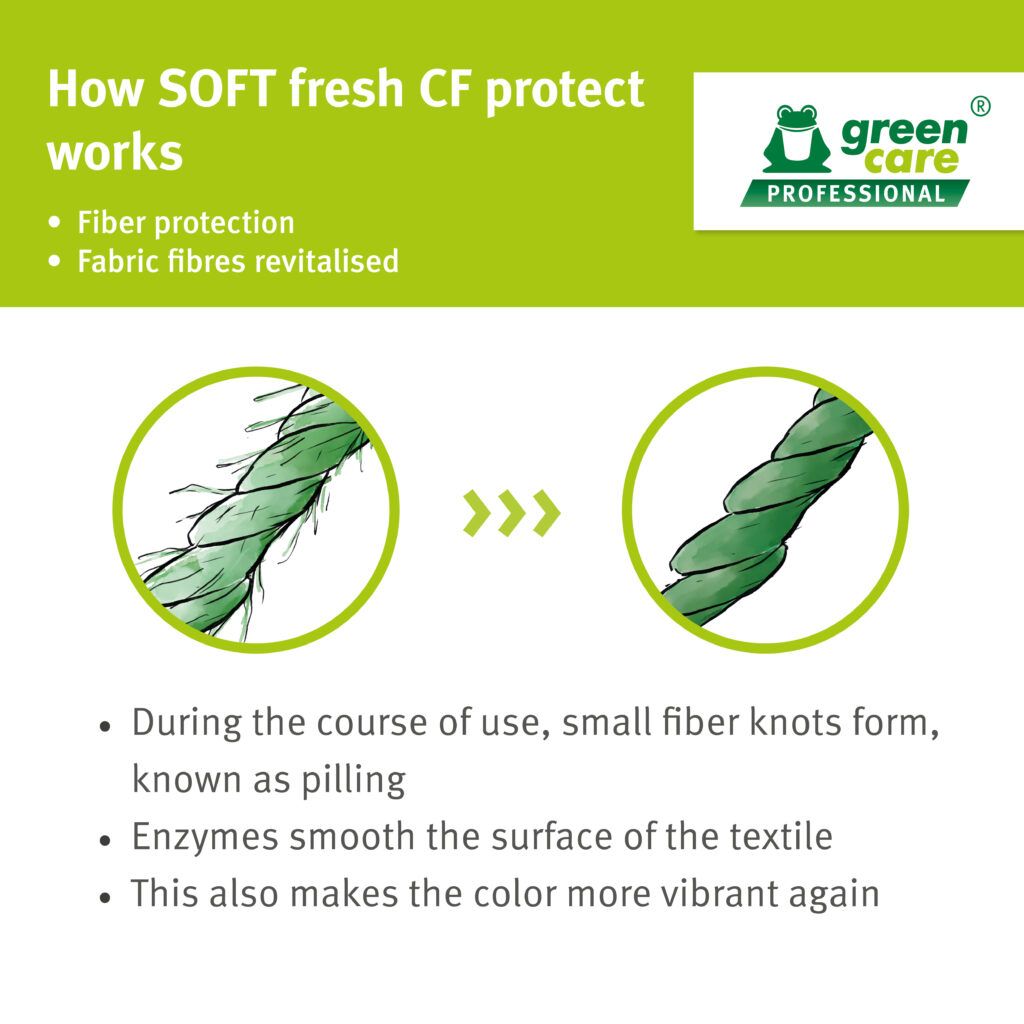2025: Looking back on a year of superlatives
Last year, Tana-Chemie once again demonstrated how successful holistic sustainable management can be — with transparent circular economy practices, a world record, prestigious awards, and groundbreaking innovations.
Even greater transparency with the Green Care Performance Calculator
In addition to savings in CO2, plastic, and crude oil, the Green Care Performance Calculator provides two new values for greater transparency and sustainability: the recycled content of the hollow body and the total packaging are now included in the certificate. Green Care Professional customers can calculate and certify their sustainable impact on the future of our planet. By purchasing Green Care brand products, significant amounts of resources were saved again in Germany and Switzerland in 2025:
– CO2: 1.624.431 kg
– Plastic: 293.903 kg
– Crude oil: 517.335 kg
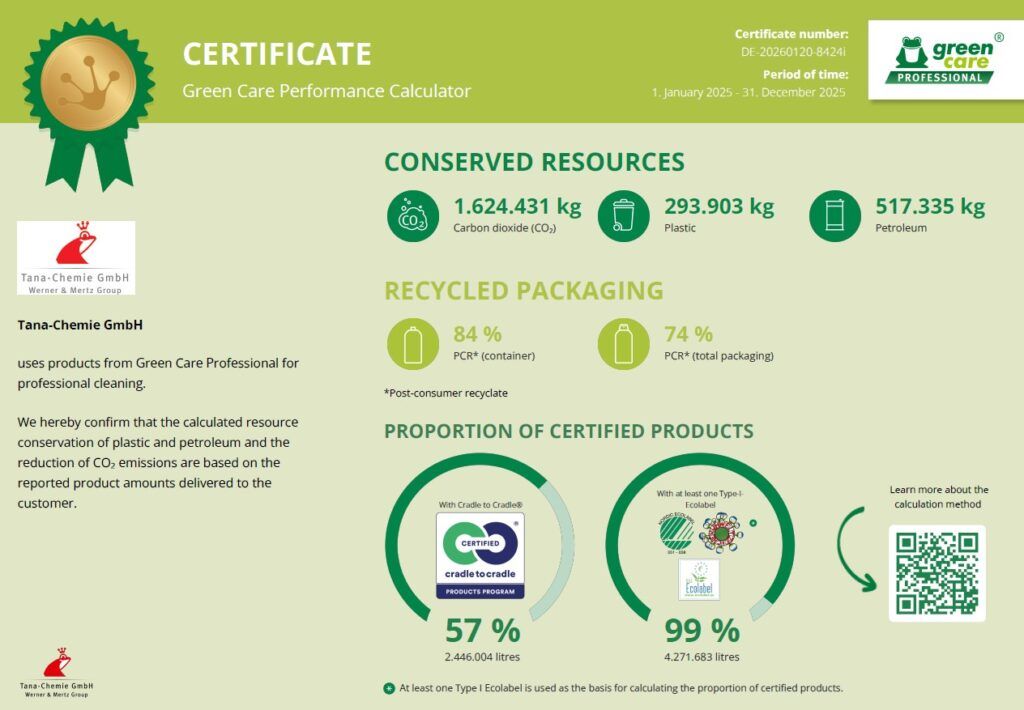
„Resource savings drive us and our customers forward every day. We are delighted not only about the renewed increase in savings, but also about the steadily growing commitment of our customers to cleaning more sustainably with Green Care Professional,” says Bianca Nerowski, Head of Product Management at Tana-Chemie.
A real milestone: 1 billion recycled bottles
Together with its parent company Werner & Mertz, Tana-Chemie is also celebrating the world record. One billion rPET bottles made from 100% post-consumer recycled material have been brought to market since the start of its recycled material initiative! A record that shows what the circular economy can achieve!
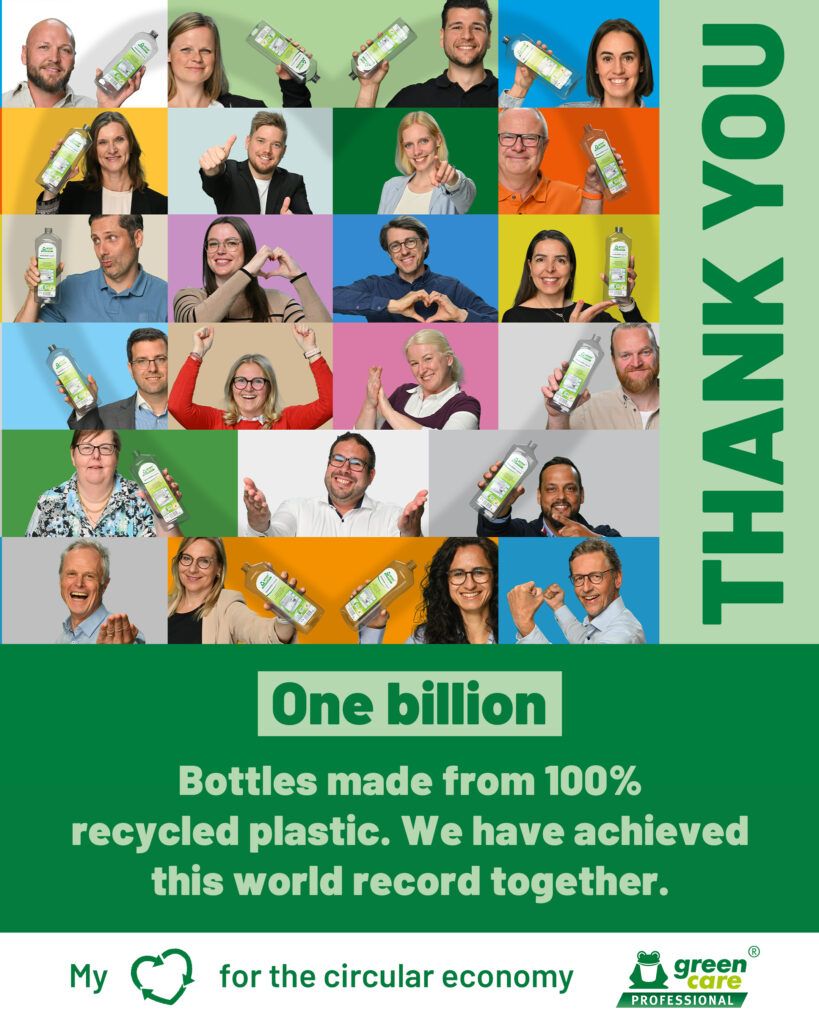
EcoVadis Platinum medal renewed for Tana-Chemie
“We see the Platinum medal, which we have received since 2021 and have been able to renew repeatedly, as recognition of our commitment to holistic sustainability. This means we remain one of the world’s most sustainable companies, as only the top 1% of all companies are honored with the Platinum medal,” says Bianca Nerowski. As a sustainability pioneer and socially responsible company, holistic sustainability has been an integral part of the corporate culture of the brand with the frog in its logo for years.
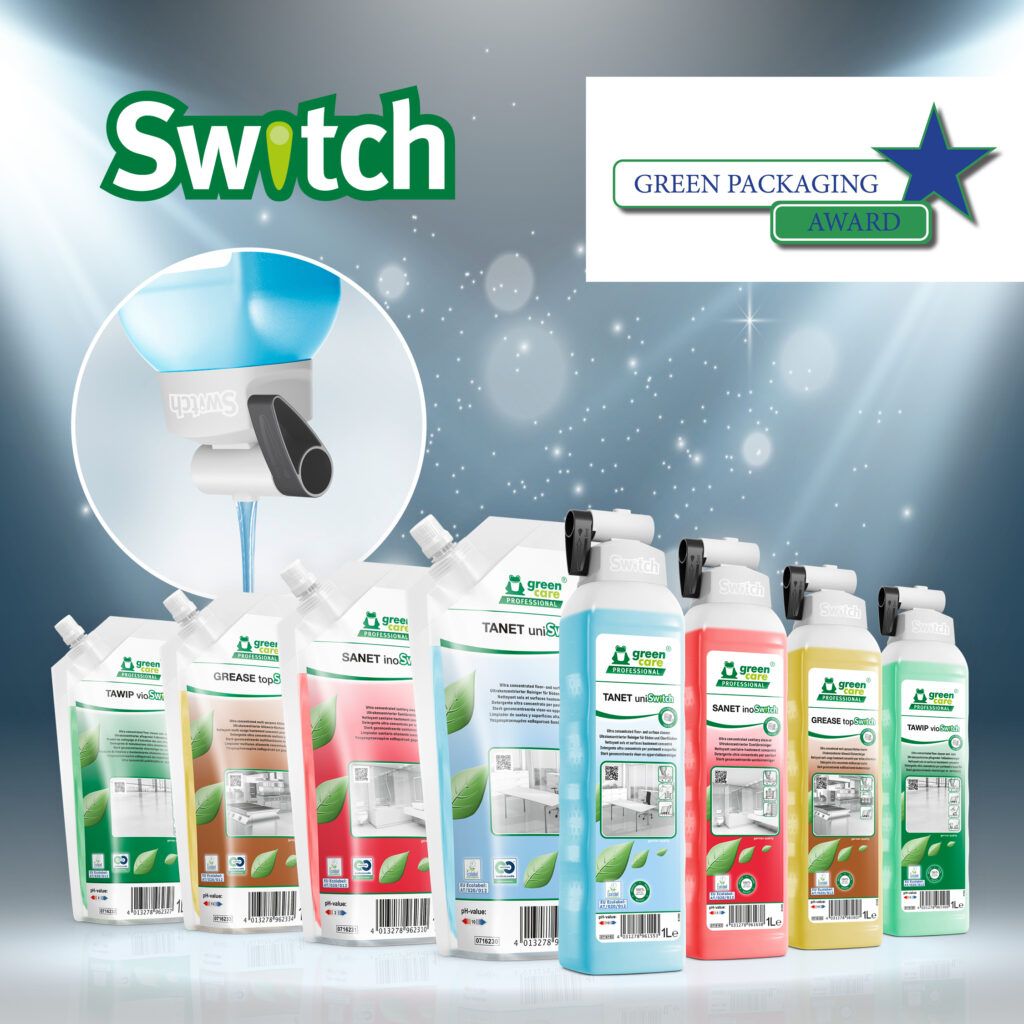
Switch system wins Green Packaging Star Award
Switch, the innovative dosing and refill system, has been awarded the Green Packaging Star Award 2025. The system represents a comprehensive and revolutionary solution for the entire professional cleaning industry. The unique combination of a bottle with an integrated dosing cap and the corresponding refill bag effectively contributes to the circular economy and sets new standards in terms of 100% recyclability and waste minimization.
